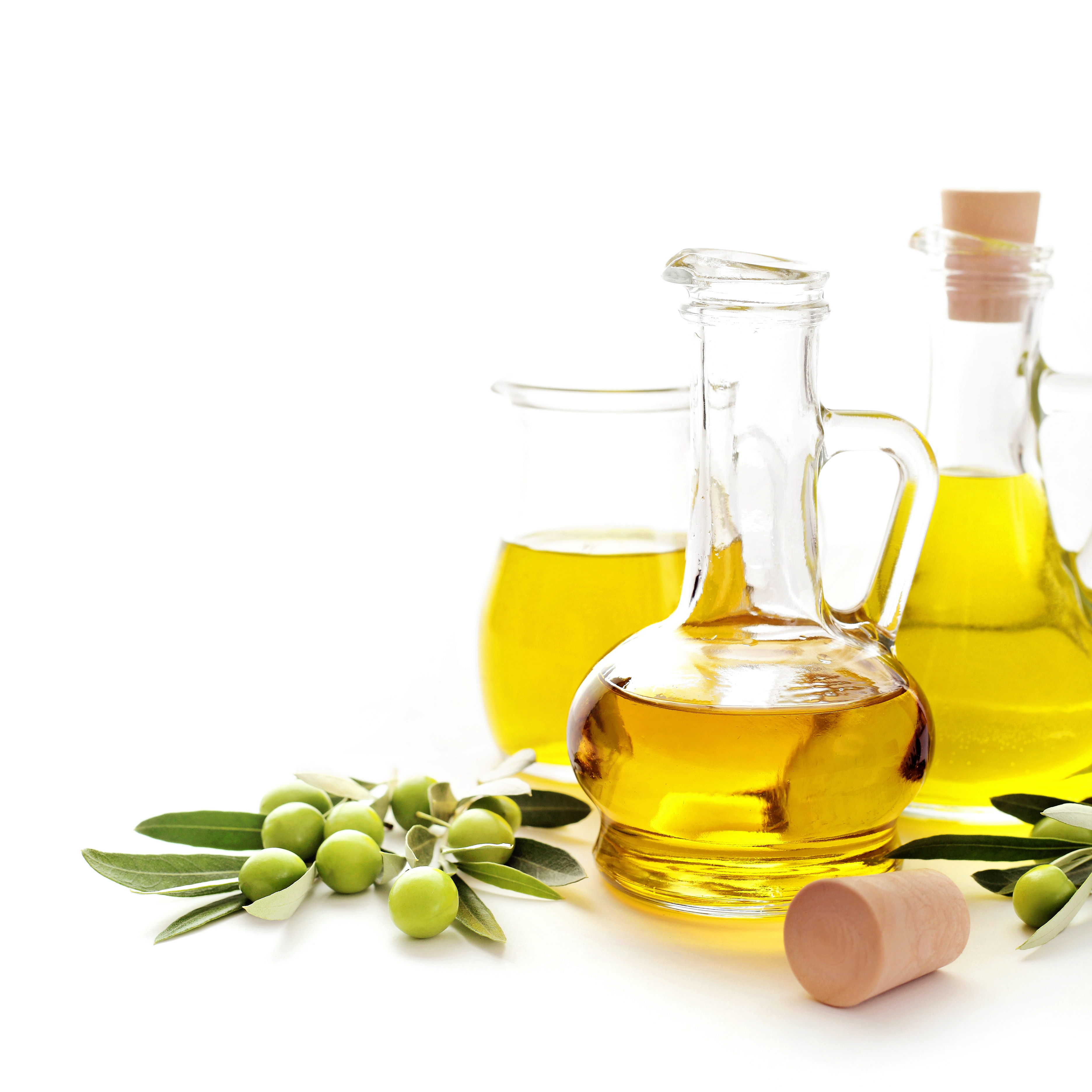There are many different kinds of fats: saturated, polyunsaturated, and monounsaturated; and our body needs a mixture of healthy fatty acids in the diet in a harmonious balance of 30% saturated, 10% polyunsaturated, and 60% monounsaturated. One such healthy fatty acid is olive oil which is extracted from the fruit of the evergreen tree, Olea europea. This golden color oil which has been consumed since 2500BC, has been used for a multitude of things such as lamp illumination, a body cleanser, a natural medicine, and an aphrodisiac.
Olive oil, a monounsaturated fat which is primarily composed of oleic acid, is an Omega-9. It is full of natural antioxidants such as Vitamin E and has anti-inflammatory effects as well as antiviral and antibacterial properties. Also, olive oil lowers our risk of heart disease and slows down the absorption of food to help stabilize our blood sugar for proper energy regulation. It provides a source of slow burning energy and makes up our cell membranes. Furthermore, it is needed for the absorption of the fat-soluble vitamins A, D, E, and K. It makes food taste good, serves as a protective lining for the body’s organs and is imperative to managing the inflammation process. It is also interesting to note that our brain is comprised of 60% fat. Therefore, it is important to feed it with quality fats for nourishment. Our brain needs fat to function properly.
Fat does not make you fat. However, if you are trying to lose weight, it is best to go easy on the olive oil. A study which was published in the journal The Lancet in 1994 shows that olive oil can contribute to weight gain. It appears the monounsaturates like those found in olive oil are the culprit. It’s the way the chemical structure is designed as a longer chain fatty acid.
When looking for olive oil, look for a pure oil – one that is not blended with other cheaper oils. Some people even buy olive oil right from a family run olive farm in Greece which is distributed in the United States. The olives are hand-picked from the tree and cold-pressed. Olive oil can be expensive and it’s best to find one in a dark-colored glass bottle. If you buy olive oil in a tin, make sure it’s BPA-free and then transfer some olive oil – enough for two weeks – into a dark-colored glass bottle and use from that bottle. The light can be damaging to this beautiful healing oil because it degrades the quality and causes free radicals to form. Store olive oil in a dark cool place or even in the refrigerator. To keep the olive oil fresh, be sure to put the cap on immediately to protect it from as much air as possible as air can oxidize the oil.
Once you have found a quality olive oil, use it with care even though it is relatively stable. Monounsaturated fats like olive oil are more delicate than saturated fats because it only has one double bond. If you want all of the healing nutrients available from the olive oil, use it cold. If you do cook with it, sauté quickly and lightly. Do not let the olive oil bubble as it can be damaged and form free radicals. Instead, you could use a saturated fat such as leaf lard or butter to cook with. If you want the flavor and nutrients of olive oil and to balance your fats, drizzle some olive oil on after the food is done cooking by simply turning off the oven and pouring a little olive oil on the cooked food. Then, shut the door for a few moments to keep the integrity of the beneficial phenols which are anti-inflammatory.
The less processed and treated, the more nutritious olive oil becomes. Its ideal use is cold. You are invited to use the olive oil unheated to not risk damaging the high quality oil that you are nourishing your body with – eating as close to nature as possible and avoiding denatured foods.
Here are a few ideas to use olive oil cold: Drizzle olive oil on some homemade hummus (not store bought because of the poor quality of oil that it’s made with), or drizzle on a homemade salad with some raw apple cider vinegar and fresh herbs. You can also make some avocado toast by toasting some homemade sprouted bread and topping it with chunks of organic avocado, a drizzle of olive oil and a sprinkle of unrefined salt. You could also make a homemade pizza. Be sure to make the dough yourself because store bought dough can have low quality oils and remember to blind bake the pizza crust with a quality saturated fat which is safe for baking. Also, use sprouted flour for your dough to make sure that you are receiving all of the nutrients. Then, add a little olive oil on the pizza after it comes out of the oven to make it even more delicious.
In conclusion, there is no absolute truth. Your guiding principal is to eat as close to nature as possible, for the less processed and heat-treated the food is, the more nutritious it will be. Olive oil – elegant and healing – plays a major role in supporting your health.
Lynn Bellamare, a student of the Nutritional Therapy Association, is working towards becoming a Nutritional Therapy Practitioner.
